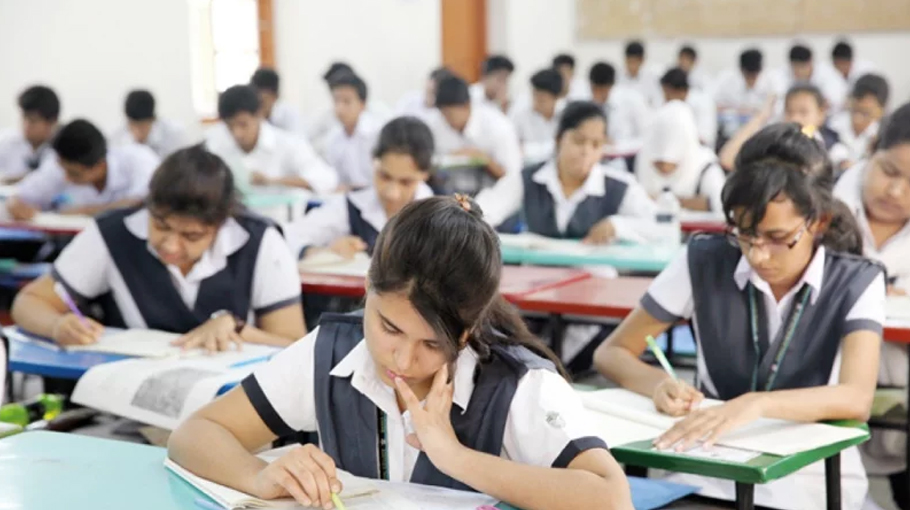SSC to be renamed SSCE
HSC exams also to see big changes

The implementation of a new curriculum that significantly alters the public examination system is making a big impact.
The SSC exam will be named SSCE as the combined board exam.
With the upcoming Secondary School Certificate (SSC) exam, a new exam pattern will be introduced, deviating from the previous standard. The SSC exams will no longer cover material from class IX; instead, it will only cover the syllabus covered in class X.
First-year students who started studying under the new curriculum this academic year in class 9 without division will be the first cohort to take the first-ever SSC exam under the new format.
Another significant change is that the Higher Secondary Certificate (HSC) exam will now be administered twice: once in class XI and its equivalent, and once more in class XII and its equivalent the following year. Thirty percent of the evaluation in class XI will come from learning assessments, and the remaining seventy percent will be based on the board exam and will be administered as a group assessment or analysis encompassing all subjects.
In the same way, class XII assessments will account for thirty percent of the evaluation, with group assessments or subject analyses accounting for the remaining seventy percent, subject to board exams.
The SSC exam, which is scheduled for 2026, and the HSC exam that follows in 2028 are significant turning points in Bangladesh's educational development.
Updates to the Class 9 curriculum have already been made as a result
of the new curriculum, which went into effect in January of this year. There are important questions regarding the implications for high-stakes exams such as the SSC and HSC arising from the introduction of public examinations at the end of classes IX and X.
The 11 education boards in the country, which include general, technical, and madrasah institutions, are in charge of managing secondary and higher secondary level exams.
The president of the Bangladesh Inter-education Board Coordination Committee, Prof. Tapan Kumar Sarkar, clarifies that although assessments from class 9 will be included in the new curriculum, the SSC exam will only evaluate material from class 10, which is expected to be completed in 2025 or early 2026.
In response to inquiries, Professor Sarkar—who also serves as President of the Inter-Education Board Coordination Committee and the Dhaka Secondary and Higher Secondary Education Board—explained that the new curriculum requires a public examination, known as the SSCE, to be taken at the end of class 10. He explained that the new curriculum will be taught to Class 10 students starting in 2025, and that the SSC and its equivalent exams will be given at the end of that year or in early 2026.
The infrastructure required to administer this test is being set up, and training for the examiners, auditors, and question developers is part of the plans.
The National Curriculum and Textbook Board (NCTB) final public examination for the tenth grade, dubbed the Public Examination of Class 10 Eligibility, is reportedly going to include exams in ten subjects. Bengali, English, Mathematics, Social Science and History, Science, Life and Livelihood, Digital Technology, Health Protection, Religious Education, and Art and Culture are some of these subjects.
The division model, which starts with class 10 in the new curriculum, is a break from the past and is sometimes referred to as one-way education. As part of the 10th-grade merit evaluation, each subject will go through a 50% learning time assessment and a 50% summative assessment (examination).
The National Curriculum Framework of the NCTB highlights how traditional testing approaches evaluate low-level intellectual development, undermining education's main objective. As a result, both summative assessments and learning time assessments in public exams are included in the new curriculum.
The removal of departmental divisions guarantees consistency in the subjects studied from classes IX to X, according to NCTB officials. At the upper secondary level, however, students will have the chance to specialize. They will have to choose three subjects from a list of options, which includes biology, chemistry, physics, economics, and other subjects. Because of this flexibility, students can choose to study science in addition to other subjects.
Additionally, students have the option to enroll in extra professional skills courses. The new curriculum calls for public examinations to be held at the end of Classes XI and XII. The combined results of the two exams will be used for evaluation.
The outline for the public examinations in classes XI and XII indicates that a 30% learning time assessment will be given in each of the three required subjects, with the remaining 70% going toward summative assessment. Summative evaluations of electives or specializations will be conducted using concepts, content, assignments, projects, real-world work, and additional learning assessments.
Mohibul Hasan Chowdhury, the minister of education, emphasizes the government's dedication to making sure the new educational system is implemented successfully. As part of its larger educational initiatives, he highlights the government's attempts to nationalize 828 educational institutions, including colleges, technical institutes, and schools, over the previous fifteen years.
Prof. Abdus Salam from Dhaka University's Institute of Education and Research believes that introducing a new public examination in the 11th grade will increase student stress. He suggests simplifying the examination system by integrating school-based assessments from earlier grades into public exams.


